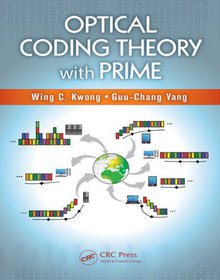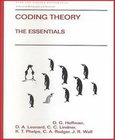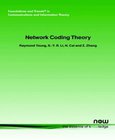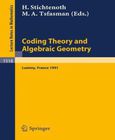Optical Coding Theory with Prime

Book Details:
| Publisher: | CRC Press |
| Series: | CRC Press |
| Author: | Wing C. Kwong |
| Edition: | 1 |
| ISBN-10: | 1466567805 |
| ISBN-13: | 9781466567801 |
| Pages: | 381 |
| Published: | May 02 2013 |
| Posted: | Nov 19 2014 |
| Language: | English |
| Book format: | |
| Book size: | 4.28 MB |
Book Description:
Although several books cover the coding theory of wireless communications and the hardware technologies and coding techniques of optical CDMA, no book has been specifically dedicated to optical coding theory - until now. Written by renowned authorities in the field, Optical Coding Theory with Prime gathers together in one volume the fundamentals and developments of optical coding theory, with a focus on families of prime codes, supplemented with several families of non-prime codes. The book also explores potential applications to coding-based optical systems and networks. Learn How to Construct and Analyze Optical Codes The authors use a theorem-proof approach, breaking down theories into digestible form so that readers can understand the main message without searching through tedious proofs. The book begins with the mathematical tools needed to understand and apply optical coding theory, from Galois fields and matrices to Gaussian and combinatorial analytical tools. Using a wealth of examples, the authors show how optical codes are constructed and analyzed, and detail their performance in a variety of applications. The book examines families of 1-D and 2-D asynchronous and synchronous, multilength, and 3-D prime codes, and some non-prime codes. Get a Working Knowledge of Optical Coding Theory to Help You Design Optical Systems and Networks Prerequisites include a basic knowledge of linear algebra and coding theory, as well as a foundation in probability and communications theory. This book draws on the authors extensive research to offer an authoritative reference on the emerging field of optical coding theory. In addition, it supplies a working knowledge of the theory and optical codes to help readers in the design of coding-based optical systems and networks. For more on the technological aspects of optical CDMA, see Optical Code Division Multiple Access: Fundamentals and Applications (CRC Press 2005).
Download Link:
Related Books:
Coding Theory
The Essentials
Network Coding Theory
Network Coding Theory provides a tutorial on the basic of network coding theory. It presents the material in a transparent manner without unnecessarily presenting all the results in their full generality. Store-and-forward had been the predominant technique for transmitting information through a network until its optimality was refuted by network coding theory. Network coding offers a new paradigm for network communications and has generated abundant research interest in information and coding theory, networking, switching, wireless communications, cryptography, computer science, operations research, and matrix theory. The tutorial is divided into two parts. Part I is devoted to network coding for the transmission from a single source node to other n...
Coding Theory and Algebraic Geometry
About ten years ago, V.D. Goppa found a surprising connection between the theory of algebraic curves over a finite field and error-correcting codes. The aim of the meeting "Algebraic Geometry and Coding Theory" was to give a survey on the present state of research in this field and related topics. The proceedings contain research papers on several aspects of the theory, among them: Codes constructed from special curves and from higher-dimensional varieties, Decoding of algebraic geometric codes, Trace codes, Exponen- tial sums, Fast multiplication in finite fields, Asymptotic number of points on algebraic curves, Sphere packings....
2007 - 2021 © eBooks-IT.org



